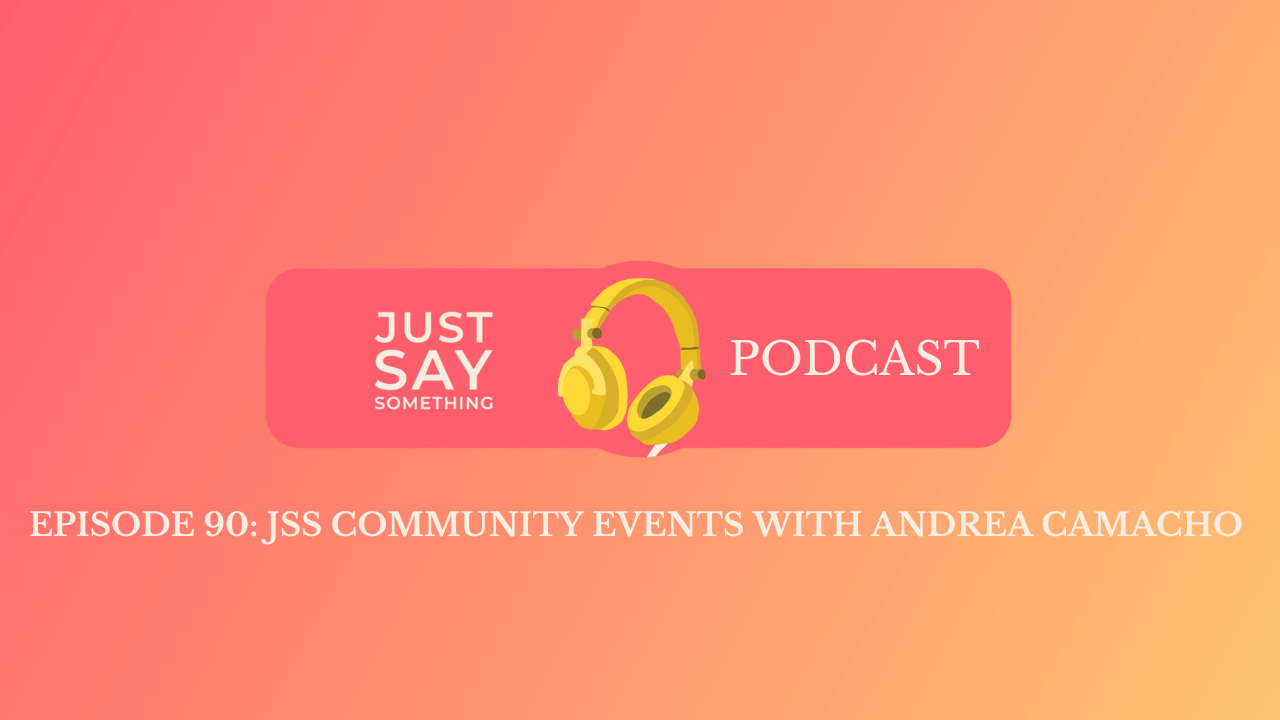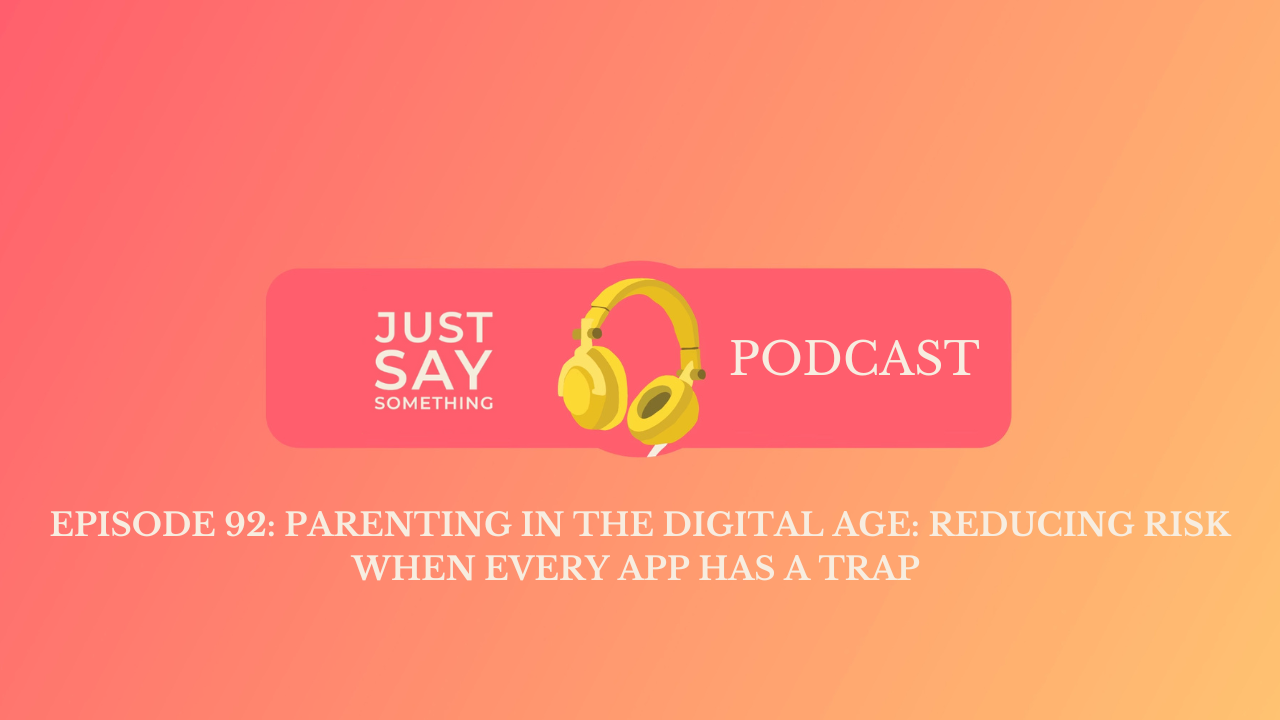[00:00:00] Foreign Philip Clark here. And welcome back to Just say Something podcast.
[00:00:14] Today I want to talk to you about something that touches nearly every family in America in one way or another.
[00:00:22] Alcohol use and misuse.
[00:00:26] Alcohol well, let me back up. April is National Alcohol Awareness Month and it gives us an opportunity to have an honest conversation about alcohol's impact on our lives and communities.
[00:00:40] Today I'll share what this awareness month is all about, why it matters to all of us whether you drink or not, and some resources that might help if you or someone you care about is struggling with alcohol.
[00:00:58] National Alcohol Awareness Month was established in 1987 by the National Council on Alcoholism and Drug Dependency. April has been dedicated to increasing public awareness about alcohol related issues, reducing stigma around alcohol use disorder, and encouraging communities to focus on alcohol related problems.
[00:01:23] Each year, organizations like Just say Something across the country host events, share information and start conversations aimed at preventing and treating alcohol misuse.
[00:01:37] The month highlights the serious consequences of alcohol misuse not just for individuals, but for families and for communities as well.
[00:01:49] It's important to note that Alcohol Awareness Month isn't about promoting prohibition or judging those who choose to drink responsibly, whether it's about encouraging honest reflection on our relationship with alcohol individually and as a society, and providing support to those who need it.
[00:02:14] So why should we all care about Alcohol Awareness Month?
[00:02:18] According to the National Institute on Drug Abuse and alcoholism, nearly 15 million Americans ages 12 and older had alcohol use disorder in 2019.
[00:02:34] That's about 1 in 20 people and alcohol is the third leading preventable cause of death in the United States with an estimated 95,000 people dying from alcohol related causes annually.
[00:02:52] But beyond the statistics, there's a personal impact.
[00:02:57] Alcohol misuse affects every aspect of a person's life, including their physical health, their mental well being, relationships and and ability to work or study effectively. And the ripple effect extends far beyond the individual affecting families, workplaces, in the entire community.
[00:03:20] Think about it. Alcohol is involved in half of all violent crimes, including domestic violence.
[00:03:30] It's a factor in many preventable energy injuries from falls to car accidents.
[00:03:38] And the economic cost of alcohol misuse is estimated at 249 billion. That's with a B dollars per year in the US alone due to lost workplace productivity, health care expenses, criminal justice cost and much more.
[00:04:05] What's particularly concerning is that alcohol problems increased significantly during COVID 19 pandemic. Many people turned to alcohol to cope with stress, isolation and uncertainty, leading to what some health experts have called a shadow pandemic of increased alcohol use.
[00:04:29] Given these far reaching impacts Alcohol awareness isn't just an issue for those who drink heavily, it's a public health concern that affects us all.
[00:04:41] I think it's important that we take a moment to understand what we mean when we talk about problematic drinking. Alcohol use disorder, or aud, is a medical condition characterized by by an impaired ability to stop or control alcohol use despite adverse social, occupational, or health consequences.
[00:05:09] It exists on a spectrum ranging from mild to severe and is diagnosed based on specific criteria such as drinking more or longer than intended experiencing cravings developing tolerance, meaning needing more alcohol to get the same effect experiencing withdrawal symptoms continuing to drink despite problems it's causing and giving up important activities because of drinking.
[00:05:43] One of the biggest barriers to addressing alcohol problems is stigma. Too often people view misuse as a moral failing or a lack of willpower rather than what it truly, truly is a complex health condition influenced by genetics, psychological and environmental factors.
[00:06:06] That's why language matters. When we talk about alcohol issues, terms like alcoholic can be stigmatizing and reduce a person's complex experience to a single label. Instead, using person first language saying a person with alcohol use disorder rather than an alcoholic helps recognize the humanity of those affected and acknowledges that the disorder is just one aspect of who they are.
[00:06:43] Understanding alcohol use disorder as a health condition, not a character flaw, is essential for fostering compassion and supporting effective treatment approaches. Sometimes the line between social drinking and problematic alcohol use can be difficult to identify, especially in a culture where drinking is so normalized.
[00:07:07] So what are some signs that alcohol might be becoming a problem?
[00:07:13] So here's a few red flags for you to watch for, either in yourself or someone that you care about drinking more or for longer than intended trying to cut down or stop drinking but not being able to spending a lot of time drinking or recovering from drinking experiencing strong cravings or urges to drink finding that drinking interferes with taking care of yourself, your family, causes job troubles or create school problems and continuing to drink even though it's causing problems with relationships giving up or cutting back on activities you enjoy so you can drink getting into dangerous situations or after drinking like driving, swimming, you using machinery, walking in a dangerous area or having unsafe sex developing a tolerance, meaning you need to drink more to get the same effect and then experiencing withdrawal symptoms when the effects of alcohol wear off.
[00:08:33] If you recognize several of these signs in yourself or someone else, it might be time to reassess your relationship or the relationship with alcohol. And remember, you don't have to hit rock bottom to deserve help. Early intervention typically leads to better outcomes.
[00:08:54] If you're concerned about your own relationship with alcohol or worried about someone else. There are many resources available for help.
[00:09:05] The Substance Abuse and Mental Health Service Administration operates a national helpline at 1-800-662-help. It's free, it's confidential and available 24, 7, 365.
[00:09:22] They can provide information, support and referrals to local treatment facilities, support groups and community based organizations.
[00:09:34] Alcoholics Anonymous has helped millions of people work worldwide and offers meetings in person and online and you can find local
[email protected] Al Anon provides support for families and friends and family members of people with alcohol problems. Find
[email protected] and many healthcare providers, including primary care doctors and psychiatrists, can screen for alcohol problems and provide treatment or referrals.
[00:10:14] Talking to your doctor is a great first step.
[00:10:18] The National Institute on Alcohol Abuse and alcoholism website niaa.nih.gov offers valuable resources and information on alcohol use disorder treatment options. And then locally you can always call 988, which is our local crisis line.
[00:10:45] Remember that recovery looks different for everyone and finding the right support approach might take time, but you can do it. The important thing is to reach out and to take that first step.
[00:11:01] As we recognize National Alcohol Awareness Month this month, I encourage all of us to reflect on our relationship with alcohol and the role it plays in our lives and community.
[00:11:15] Whether you choose to drink or not, understanding the potential risk and knowing the warning signs of problematic use can help you make informed choices and support those around you.
[00:11:29] If you or someone you know is struggling, please remember that help is available and recovery is possible. You're not alone and reaching out for support is a sign of courage, not weakness.
[00:11:46] If you enjoyed this episode, thank you. Please subscribe, share, follow, comment and like our podcast. It helps us to be found by others.
[00:12:00] Thank you for listening to Just say Something. I'm Philip Clark and we'll be back next week with a new podcast.


